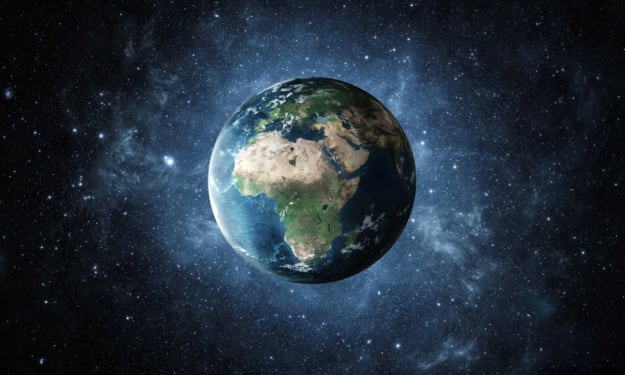Solar System & Planets
Solar System & Planets

Solar System & Planets
The small intelligent Planet showcases the planets in our solar system. As we embark on a journey around it, we encounter the sun at the center, which is significantly larger than the planets orbiting around it. Let's board our spaceship and explore all the planets in the solar system together. The sun, a star, is truly massive.
The planet Mercury, which is the closest to the Sun, is the smallest in our solar system. However, it is also the fastest in terms of its rotation around the Sun. See you soon!
Mercury Venus is the second planet from the Sun and is known for being the warmest planet. It has a yellow hue and is similar in size to Earth. Earth, our home planet, is a beautiful sight from afar with its blue, white, and green colors representing the sea, clouds, and land. It is the only planet in our solar system known to support life, making it truly unique. Look, there's our moon orbiting around Earth, isn't it stunning? Goodbye Earth. Mars, the fourth planet in our solar system, is often referred to as the red planet. It is composed of rock and boasts the tallest mountains in our solar system.
There are no martians here, I'm just joking. However, it is important to be cautious between Mars and Jupiter as there is a massive asteroid belt. Jupiter, being the fifth planet in the solar system, is the largest and primarily composed of gas. It has a distinct red color and a massive brown spot, which is actually a storm. Interestingly, Jupiter also holds the record for having the most number of moons among all the planets. Goodbye!
Saturn is easily distinguishable from Jupiter as it is the planet adorned with rings. Upon closer inspection, one can observe that these rings are composed of millions of pieces of rock and ice orbiting the planet. Thank you for your attention.
Saturn Uranus is the seventh planet in our solar system. It is characterized by its deep blue color and distinctive rings. Interestingly, Uranus rotates in a unique manner compared to the other planets - from top to bottom.
Neptune, situated at the farthest end of our solar system, marks the final celestial body in our planetary lineup. This distant planet, akin to Uranus in its blue hue, holds the title of being the coldest among all the planets. When observed from Neptune's surface, the sun appears no more than a minuscule star amidst the vast expanse of space.
We have finally arrived at the conclusion of our journey through the solar system. Throughout our expedition, we have observed each and every planet, including Neptune, Uranus, Saturn, Jupiter, Mars, Earth, and Venus.
Let's begin with the planet nearest to the sun, Mercury. Mercury is a terrestrial or rocky planet that revolves at a distance of nearly 58 million km from the sun, or 36 million miles. It is the smallest planet in the solar system, measuring only 4,879 km in diameter, which is equivalent to 3031 mi. Despite being slightly larger than Earth's moon, the two bodies bear a striking resemblance. Despite its small size, Mercury ranks as the second most dense planet in the solar system. Mercury completes a full orbit around the sun in just 88 days, while a full day cycle on the planet lasts.As evident from its craters, mercury has undergone numerous impacts throughout the years.
Venus, situated beyond mercury, is also a terrestrial or rocky planet and orbits at a distance of approximately 107 million km or 67 million miles from the sun. It boasts a diameter of 12,103 km or 7520 mi. Despite not being the closest planet to the sun, Venus is undoubtedly the hottest, with surface temperatures reaching nearly 465 degrees Celsius or 900 degrees Fahrenheit. These extreme temperatures...





Comments
There are no comments for this story
Be the first to respond and start the conversation.